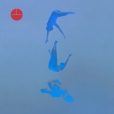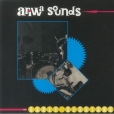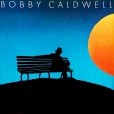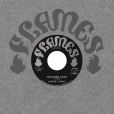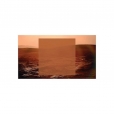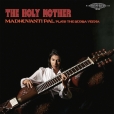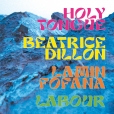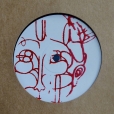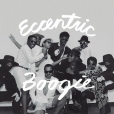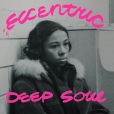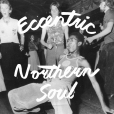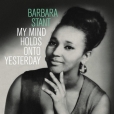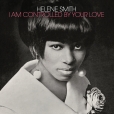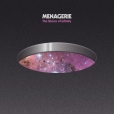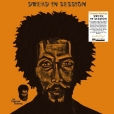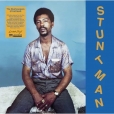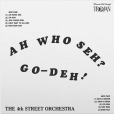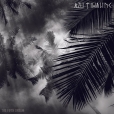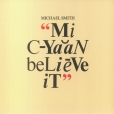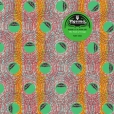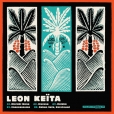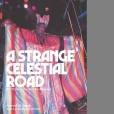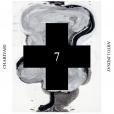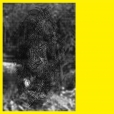Your basket is empty

‘Sublime, ethereal minimalism: the first drawing together of Onogawa’s soundtrack compositions, plotting a decade of music for films by cult filmmaker Gakuryū Ishii.
‘Sequenced into an album by Onogawa himself, this retrospective spans a fertile period of collaboration with Ishii, through soundtracks for three remarkable films — August in the
Water (1995), Labyrinth of Dreams (1997), and Mirrored Mind (2005) — where the cinema is texturally and sensually imbued with the spiritual, ambient, dreamlike quality of Onogawa’s music.
‘The sound Onogawa conjures for these films is elegant and patient, often spare or essential in form, but saturated in a strange and otherworldly, poetic emotion and atmosphere. Boundaries are crossed between New Age and science fiction, passing through blissfulness, melancholy, and paranoia, towards enchantments of mood and colour.
‘It’s notable that the compositions on this album straddle the millennium, with a fitting mix of divine and uncertain themes. New listeners might hear links to Mark Snow’s work for the X-Files and Millennium, or the soundtracks of certain future-facing and future-fearing Japanese anime or cyberpunk.
‘Onogawa’s music adds great depth and tenor to the sensory experience of the films themselves, but it stands just as strongly as a listening experience on its own terms; a virtuosic example of Ambient that changes in hue when turned in the light. Remarkably, like Ishii’s films, Onogawa’s work has never been widely available outside of fervid underground fan posts, usually sourced from extremely limited and private CDs limited to Japan.
‘This retrospective seeks to remedy that, presenting Onogawa as one of the great composers of the last three decades.’
“This is killer,” says Ben UFO.
The oldest form of North Indian classical music still performed today — dhrupad — played by Madhuvanti on an instrument she built herself, recorded at home.
Two ragas; over ninety minutes.
Full-color gatefold, with extensive liner notes.
Four dazzling, extended engagements with mbalax master-drumming.
The contribution from Holy Tongue is chase-the-devil steppers — thumping, clangorous, reverberating — super-charged with energy and atmosphere. From the off, drummer Valentina Magaletti detonates a hard rain of small bombs, rounds of fire, ticking fuses. Musical co-ordinates are somewhere between classic On-U Sound crew like African Head Charge, The Mothmen, and Creation Rebel, and the experimental funk of the Pop Group and 23 Skidoo, at their funkiest. Thrillingly, the two dubs are increasingly deranged.
Adjusting the same wavelengths as her superb Workaround LP, Beatrice Dillon plays spaced-out, abstract synth-work against the bodily physicality of the ancient, shifting mbalax rhythms. The music is poised, mindful, tentative; but also limber, fleet, and magical.
Phantasmagorical and efflorescent, Lamin Fofana’s one-two is simply stunning. Both excursions are wide-open, beautiful, epic, and propulsive — the first mix is banging and headlong, the second more syncopated and serpentine — teeming with freshly sublime, funkdafied updates on Jon Hassell’s Fourth World possible musics.
The two parts of LABOUR’s Etu Keur Gui engage the same sequence of drum patterns (called bakks) from different perspectives. The duo performed portions of this piece at the opening ceremony of the Dakar Biennial in 2022, at the Grand National Theater, with thirty sabar players from the family of Doudou Ndiaye Rose. This Wolof phrase for the inside-yard of a home — a meeting-place, an architectural breather — doubles here as a metaphor for inner space on a metaphysical level; and Pan Sonic, Muslimgauze, Zoviet France, early Shackleton… all ghost across the threshold.
Scintillating minimal techno. Crystalline, mystical. Outstanding.
‘Eventually crowned Queen of the Norfolk Sound, Barbara Stant was just a teenager when she auditioned for Shiptown impresario Noah Biggs in 1970. A dozen sides were tracked throughout the decade, producing a body of work that stretched from deep soul to northern soul to sister funk. By 1978 disco was in overdrive, Noah Biggs was in the ground, and Stant’s career on hold. My Mind Holds Onto Yesterday is what remains.’
‘Teenage melancholy from the original Miami Sound Machine. Backed by the infamous FAMU Marching 100 Band and Frank Williams’ crack shot players The Rocketeers, I Am Controlled By Your Love compiles sides from Helene Smith’s ‘60s tenure with the Deep City, Lloyd, Reid, and Blue Star labels. A sweltering album of twelve deeply soulful, alternate universe hits from the First Lady of Miami Soul!’
A fourth LP of spiritual jazz by this feted nine-piece from Australia.
‘A stunning work, full of integrity and class… Essential’ (Echoes).
‘Wonderful record, full of some great Kamasi/Donald Byrd/even Art Blakey moments.’ (The Guardian).
Originally released in 1975. Featuring guest musicians Ken Boothe, Delroy Washington, Bob Davis, Gene Rondo, and former members of the Cimarons. .. and a sprinkling of Black Ark magic.
Aka the Clem Bushay All Stars, including Candy McKenzie, Dennis Bovell, Janet Kay, Jimmy Mack, Junior English, Moon Rocks and Zabandis…
From 1977.
The Dennis Bovell / Matumbi dub set from 1976.
‘The peak of the era’s UK roots dub. For dubbing at its wildest, check out Za-lon and its version Halfway To Za-lon’ (Steve Barker, The Wire).
A fabulous survey of early Congolese recordings, 1948-1963.
We can’t recommend it strongly enough.
Big Hands re-united with trumpeter Abraham Parker.
Trialled triumphantly in recent live shows, the opener comes good on the promise of the duo’s triumphant debut for Trule: gliding, hypnotic, and moody, with rueful, burnished brass interjections riding dubwise steppers.
Then a pair of distressed, halftempo d&b rhythms: a call to arms, and a troubled circling of the wagons. Waltz For Matis winds up proceedings with a deep, spooked Fourth World excursion, with skittering marimba.
Another ace EP.
